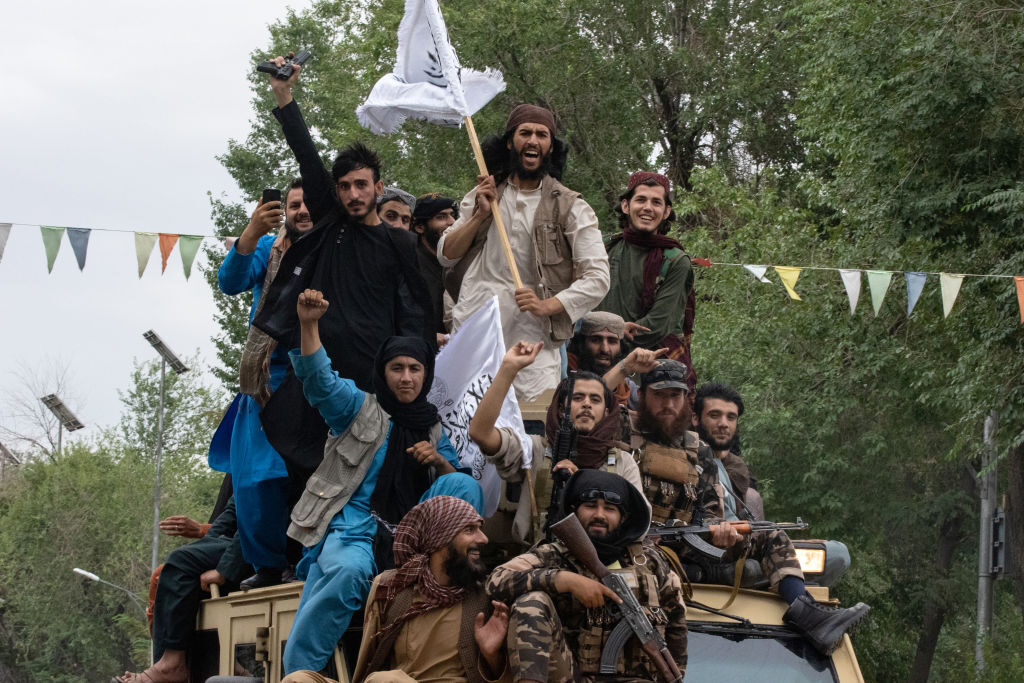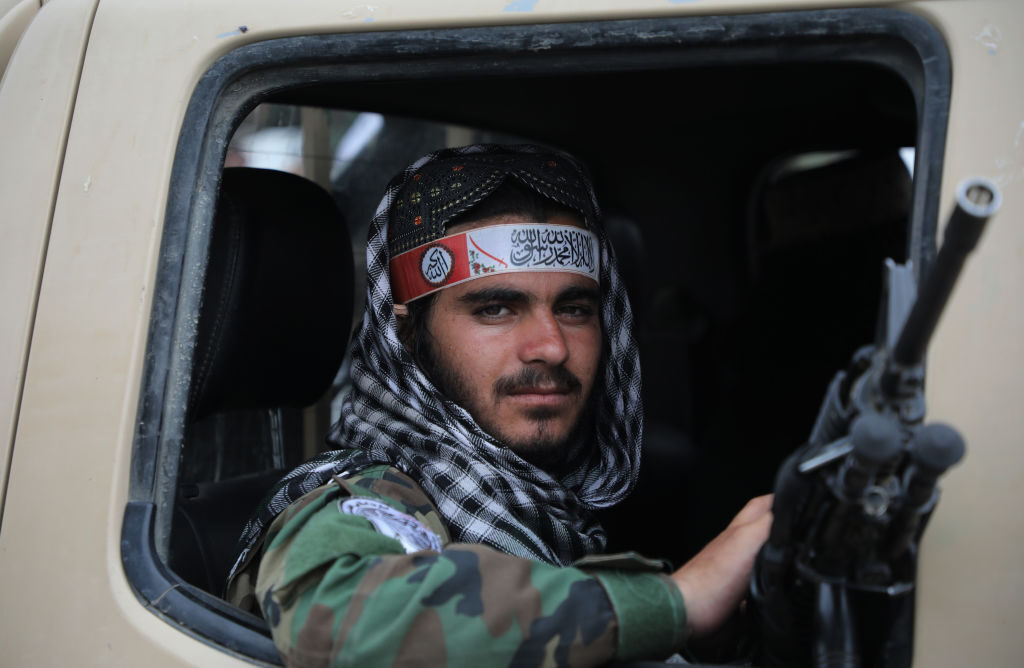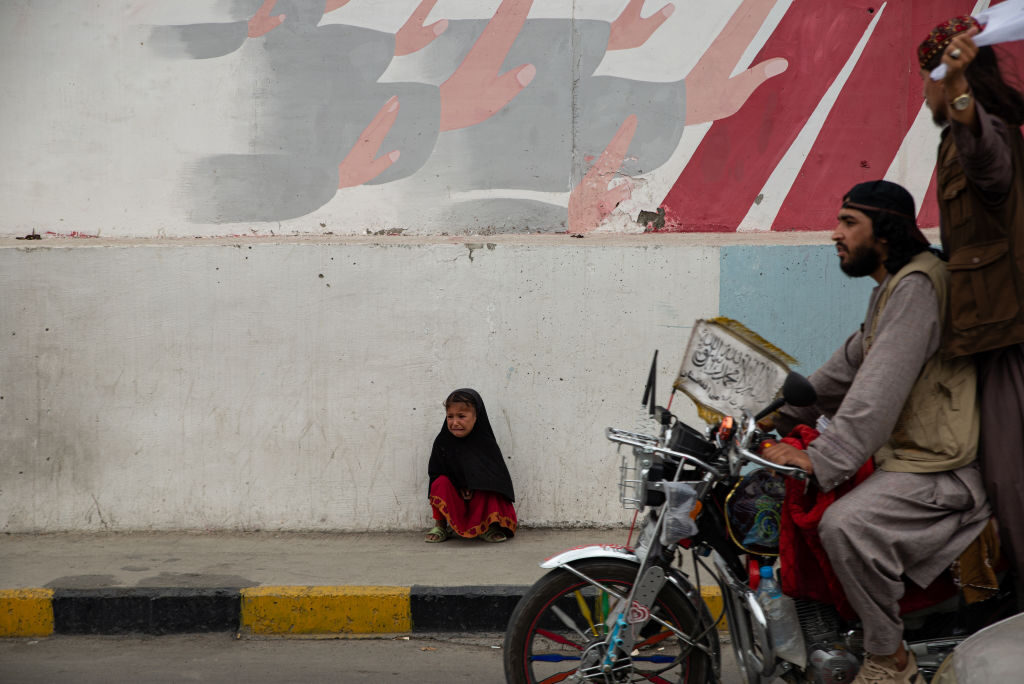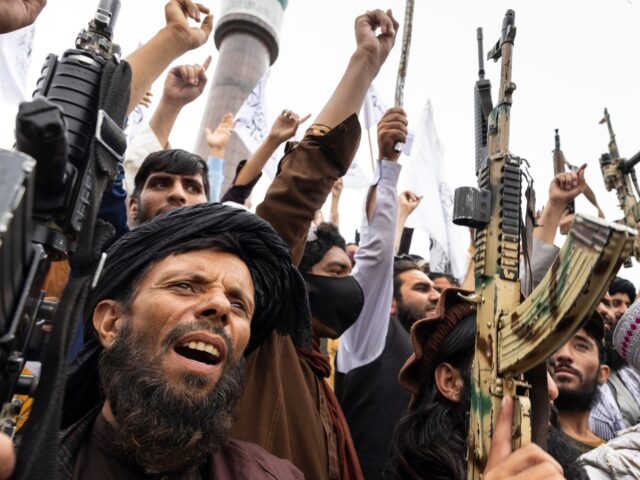Taliban “foreign minister” Amir Khan Muttaqi urged the world to “cooperate with” the Sunni terrorist organization, rather than “sanction” it, at an event to mark the one-year anniversary of the fall of the government of Afghanistan on Monday.
The Taliban declared Monday a national holiday – “Kabul Conquest Day” – and celebrated with a televised event featuring Taliban leaders making outrageous claims to achievements in “culture and literature” under their rule and vowing the full “implementation of the Islamic system” on the population of Afghanistan.
The Taliban is a radical Muslim terrorist group that previously presided over a violent regime from 1996 to 2001 in the country, losing power after the United States invaded in response to the September 11 jihadist attacks. Taliban leaders returned to power on August 15, 2021, after leftist President Joe Biden broke a promise made under predecessor Donald Trump that American troops would leave the country by May 1, announcing an extension of the war into September.
Taliban jihadists announced that Biden’s move had broken a deal that had previously committed the group to peaceful participation in the government’s political system, launching 22,000 attacks on the Afghan government between April and July 2021 and ultimately overthrowing its government.

Men ride on top of an armored vehicle during a celebration of the first anniversary of the Taliban’s return to power on August 15, 2022 in Kabul, Afghanistan.(Nava Jamshidi/Getty Images)
When Taliban terrorists reached Kabul, the nation’s capital, then-President Ashraf Ghani fled, reportedly filling a helicopter with cash and eventually landing in the United Arab Emirates (UAE). Ghani still claims to be president of Afghanistan as of last week, though he has no power over the country in practice.
The whereabouts of the millions of dollars believed to be in the Kabul presidential palace when Ghani fled, much of it American taxpayers’ dollars, remain unknown.
Despite significant evidence that the Taliban came to possess that cash, Taliban leaders have for months insisted that they cannot fund a functional government currently, citing international institutions like the World Bank and International Monetary Fund (IMF) freezing Afghan government assets.

Taliban members held a convoy to celebrate Taliban’s first anniversary of taking over the government, in the capital Kabul, Afghanistan on August 15, 2022. (Haroon Sabawoon/Anadolu Agency via Getty Images)
The U.S. government has also frozen those assets, refusing to recognize the Taliban as a legitimate government. Taliban leaders claim that the tremendous poverty, including the threat of famine and lack of basic medicines and other supplies, is the product of the financial restrictions, but boast of lavish investments in their jihadist army.
Only Iran and China have officially accepted the Taliban as the government of Afghanistan.
Muttaqi, the top Taliban diplomat, made that case during the televised celebration on Monday.
“We should all work together to take advantage of this opportunity, and the international community should cooperate with Afghanistan and the new government,” Muttaqi reportedly said, according to Afghanistan’s Tolo News. “In order to prevent the misery that occurred during the past 40 years that no one could stop, so not repeat it again. Here, every remedy has failed.”
The Taliban’s Bakhtar News Agency quoted Muttaqi as expressly condemning sanctions, putting an economic emphasis on his call for “cooperation.”
“Fueling instability in Afghanistan would not benefit the world, the Afghan people need the cooperation of the international community instead of imposing sanctions on them,” Muttaqi said, according to Bakhtar. “There may be shortcomings, but it is necessary to help each other to prevent failed experiences.”
The top diplomat’s comments echo demands for the world, and particularly America, to financially invest in the Taliban’s success.
“It is now for foreign countries, specifically the United States, to do their part in alleviating the pain of Afghans by lifting all unilateral economic sanctions to let the banking and economic sector function optimally,” Foreign Ministry spokesman Abdul Qahar Balkhi told Voice of America this weekend.
Muttaqi was one of several Taliban leaders to issue a celebratory address on Monday. The remarks by official spokesman Zabihullah Mujahid and Second Deputy Prime Minister Abdul Salam Hanafi emphasized alleged achievements, including the violent implementation of the Taliban’s interpretation of sharia, or the Islamic law.

A girl cries on a sidewalk as men ride by on a motorbike during a celebration of the first anniversary of the Taliban’s return to power on August 15, 2022 in Kabul, Afghanistan. (Nava Jamshidi/Getty Images)
“Alhamdulillah, corruption in all its forms, including moral and administrative corruption, has been eradicated; there is no corruption anywhere in any province or in any government agency,” Hanafi claimed. He also alleged that the Taliban was working on freeing Afghans from drug addiction, which he called a “souvenir of the 20-year occupation,” meaning the U.S. war in response to the al-Qaeda attacks.
Afghanistan is the world’s largest cultivator of opium, which the Taliban claimed to have outlawed. Recent reports indicate that methamphetamine production is growing rapidly under the Taliban, however. Taliban jihadists have also imprisoned drug addicts in alleged rehabilitation facilities for use in propaganda initiatives, reportedly depriving them of heroin and other opium products with no mitigation treatments for potentially deadly withdrawal symptoms.
Mujahid, during his remarks, claimed that the Taliban had fueled “major developments … in media, culture, literature, and other fields, and efforts are still underway for better improvements in various areas,” without elaborating. In reality, the Taliban has persecuted journalists and shut down independent media outlets and forced all artists, writers, and journalists to conform to its repressive version of sharia. The Taliban claims that the media outlets shut down during their year in power merely stopped receiving foreign funding.

COMMENTS
Please let us know if you're having issues with commenting.